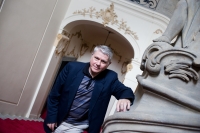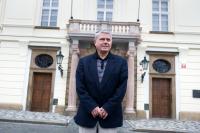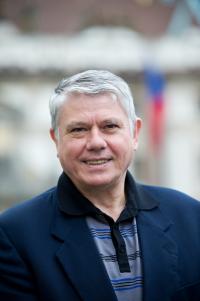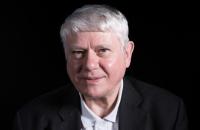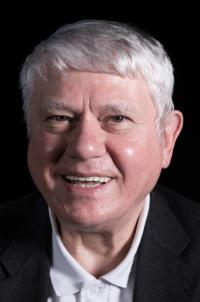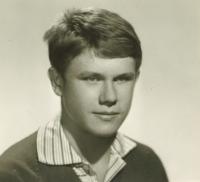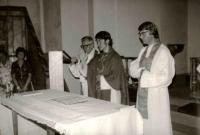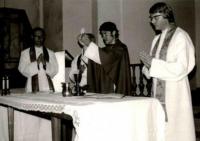Freedom cannot be credited to individuals or to some movements - above all it is a great gift from God
Bishop Václav Malý was born September 21st 1950 in Prague. When he was nineteen, he entered the seminary in Litoměřice, and began studying at the faculty of theology there. Due to his criticism of the state-supporting movement Pacem in Terris, he was threatened with not being ordained a priest after seven years of study. Thanks to the intervention of cardinal Tomášek he eventually became a priest in 1976. In 1977 Václav Malý also signed Charter 77 in the second wave of its signatories, knowing his signature would probably cost him the state approval for ministry which was at that time indispensable for anyone to work as a priest. He served publicly as a priest for less than two years in the parishes of Vlašim and Pilsen, before his state approval was withdrawn from him. In 1979 he was active in the Committee for the Defence of the Unjustly Persecuted (VONS), which provided practical help to imprisoned dissidents. Due to his work for VONS he was arrested in the same year, and he spent a total of seven months in prison; he was investigated for suspicion of subversion against the republic. After his release he was obviously not permitted to publicly serve as a priest, and he worked as a boiler-man. He was, however, active as a priest in secret; he was visiting believers, celebrating masses and helping non-Prague dissidents, who could not rely on the dissident community. In 1981-1982 Václav Malý was also the spokesman of Charter 77. This duty carried increased risk of another imprisonment. He got involved in the events of November 1989 mainly as a moderator of various meetings and as a spokesman for the Civic Forum. He was also moderating mass anti-communist demonstrations - at first from the balcony of the Melantrich building on Wenceslas Square, then on Letná Plain. Unlike other foremost representatives of the Velvet Revolution, Václav Malý did not aim for political activity, but in 1990 he returned to public spiritual ministry in the parish of St Gabriel, later he continued in St Anthony in Prague-Holešovice. In 1996 he became the Canon of the Metropolitan Chapter in Prague, and in the same year he was appointed the auxiliary bishop of Prague. He was ordained in November 1997. He chose the words „humility and truth“ as his bishop‘s motto.

